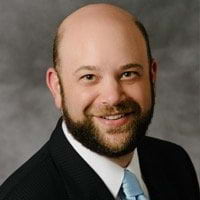Foreclosure Question: Who Is A Third Party Bidder?
We received an interesting question, “When a holder of a first mortgage, who is a private individual, enters a bid at foreclosure auction greater than the amount of its mortgage, does that mortgage holder’s status change to a third-party bidder for purposes of the safe harbor provision under Florida law?”
The simple answer to this question is “no.” The bid amount has nothing to do with the status of the person or company making the bid.
The “safe harbor” provision refers to Florida Statue section 718.116(b) under the Florida Condominium Act, and section 720.3085(2)(c) of the Homeowners’ Association Act. Both sections are nearly identical and provide that the liability of the mortgage company that acquires title to the property by foreclosure or deed in lieu of foreclosure is limited to the lesser of: (1) twelve months of unpaid assessments, or (2) one percent of the mortgage debt. This limitation of liability to the mortgage company is specific to the first mortgage holder and, in the case of a homeowners’ association, only if the association is included as a defendant in a mortgage foreclosure case. In all other situations where someone else wins the foreclosure auction, like the second mortgage company, another judgment holder, or an unrelated third-party bidder (like a real estate investor), that successful bidder owes the association 100% of any outstanding , unpaid assessments.
Typically, in a foreclosure situation, the plaintiff has no incentive to bid in excess of the value of its judgment. The plaintiff has a “credit bid” up to the amount of the judgment. We explain it this way: assume the judgment is $100,000 – the first $100,000 paid into the Court registry after an auction would be paid to the plaintiff, thus there is no logical reason for the plaintiff to pay $100,000 into the Court Registry only to receive that money back. Therefore, the plaintiff does not have to pay any money into the Court Registry unless its bid exceeds the amount of its judgment. In addition, the successful bidder, even if it is the plaintiff, must pay documentary stamp taxes on the amount of its winning bid. Again, why would the lender pay more than the judgment amount thereby incurring additional taxes? Therefore almost every bid in a foreclosure auction starts at $100; in order to pay the lowest amount of documentary stamp taxes (transfer taxes) in the amount of $0.70.
If the property is upside down (meaning the value of the property is less than the judgment) then, generally, our opinion is that the first lender should only bid to a maximum of the property value, rather than the judgment amount. This prevents the lender from acquiring a property that it would have to secure, clean, and sell for less than its cost of acquisition.
In the original question, the person asking also suggested that the property was worth far in excess of the judgment amount, and the mortgage holder was a private individual who wanted to re-acquire the house through the foreclosure sale. This is one of the few narrow situations where bidding in excess of one’s own judgment might be a good idea, but in most cases I might suggest to a client to take the money from the foreclosure sale allowing someone else to bid, and moving on to the next investment.
To specifically answer the question, the “safe harbor” statutes discussed above have no reference to the amount of the bid at foreclosure auction, only the status of the person or entity making the bid – the “first mortgagee.”
For more information on Florida Real Estate Law, please subscribe to the Crushing Debt Podcast, on iTunes, Stitcher and GooglePlay. If you prefer, please contact us to schedule a free initial consultation to discuss your options at 727-261-0224 or email me directly at shawn@yesnerlaw.com.
Shawn M. Yesner, Esq., is the founder of Yesner Law, P.L., a Tampa-based boutique real estate and consumer law firm that helps you eliminate the financial bullies in your life. We assist clients with asset protection, the sale and purchase of real property, Chapter 7 liquidation, Chapter 13 reorganization, bankruptcy, foreclosure defense, debt settlement, landlord/tenant issues, short sales, and loan modifications in Tampa, Westchase, Odessa, Oldsmar, Palm Harbor, Clearwater, Pinellas Park, Largo, St. Petersburg, and throughout the greater Tampa Bay area.




